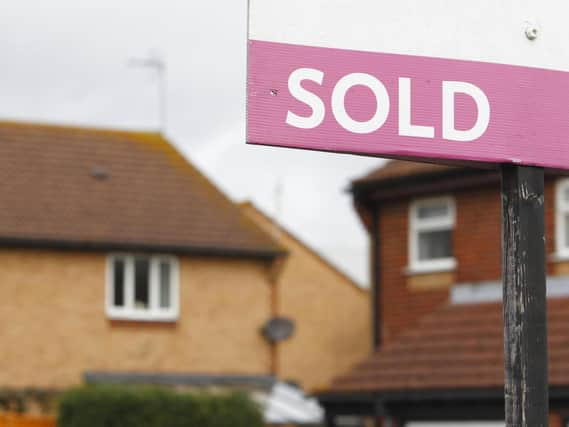The potential pitfalls in buying a property for your child - Gareth Shaw


Dear Gareth,
I am in the process of buying a flat for my son. It costs £95,000 and I am providing £85,000. The flat will be part of his inheritance.
I have three other children who know about this arrangement and are prepared to wait for their share until the appropriate time. I am 73 years old.
Advertisement
Hide AdAdvertisement
Hide AdCan you please advise me of any pitfalls in this arrangement?
Kate Charlesworth, via email
Gareth says…
I am assuming that your son is going to be the only named owner of the property, and that you will not be joint owners of the flat. Effectively, then, you are gifting him £85,000 at the point of completion, which he is using along with his contribution to purchase the property in his name.
The main issue you need to be aware of is inheritance tax. Each individual can give away £325,000 free of inheritance tax – or, if your estate includes your main property and is being inherited by ‘direct descendants’ (ie children and grandchildren), £500,000. Anything above this amount will be taxed at 40%.
If your estate – all of the assets that you own – exceeds these thresholds, you can reduce it by giving money or assets away while you’re alive, softening a potential inheritance tax blow for your heirs when you pass away.
Advertisement
Hide AdAdvertisement
Hide AdSome gifts can be made without inheritance tax ever being an issue. Gifts between you and your spouse or civil partner are always tax-free. You can give away £3,000 a year, and an unlimited number of £250 gifts (so long as they are going to different people and not the same recipient of your £3,000 gift allowance). You can also give money to children and grandchildren for weddings - £5,000 for your children and £2,500 for grandchildren.
Anything above these amounts could potentially be liable to inheritance tax. They are classed as ‘potentially exempt transfers’. If you survive for seven years after making the gift, no inheritance tax is due. However, if you die within this time, the gift will be considered part of your estate for inheritance tax purposes.
A potentially exempt transfer is applied to your inheritance tax allowance of £325,000 before all of your other assets are totted up in your estate. This means that if you gift your son £85,000 as you plan to do, and die the following week, your son won’t have to pay inheritance tax on that gift, but your other children will only have £240,000 worth of inheritance tax-free allowance (or ‘nil-rate band’) to use when they inherit the remainder of your estate. If it exceeds this amount, they may have to pay tax on the excess.
The longer you survive into the seven-year period after you’ve given a gift, the lower the inheritance tax payable on that gift. If you die three to four years after giving the gift, the tax is reduced by 20%, between four and five years, it reduces by 40%; between five and six years, it reduces by 60%; and between six and seven years, it reduces by 80%.
Advertisement
Hide AdAdvertisement
Hide AdNone of us have a crystal ball to predict our mortality. The Office for National Statistics says that you have a life expectancy of 88, and a one in four chance of living to 94. So there is hope, should you have good health, that there won’t be any inheritance tax issues for you to worry about.
But I would strongly suggest that you explain exactly what you’re doing with your other children, and perhaps consider adapting your will to reflect the new agreement with your son, and what that means for your inheritance plans for the rest of your family.
Support The Yorkshire Post and become a subscriber today. Your subscription will help us to continue to bring quality news to the people of Yorkshire. In return, you'll see fewer ads on site, get free access to our app and receive exclusive members-only offers. Click here to subscribe.